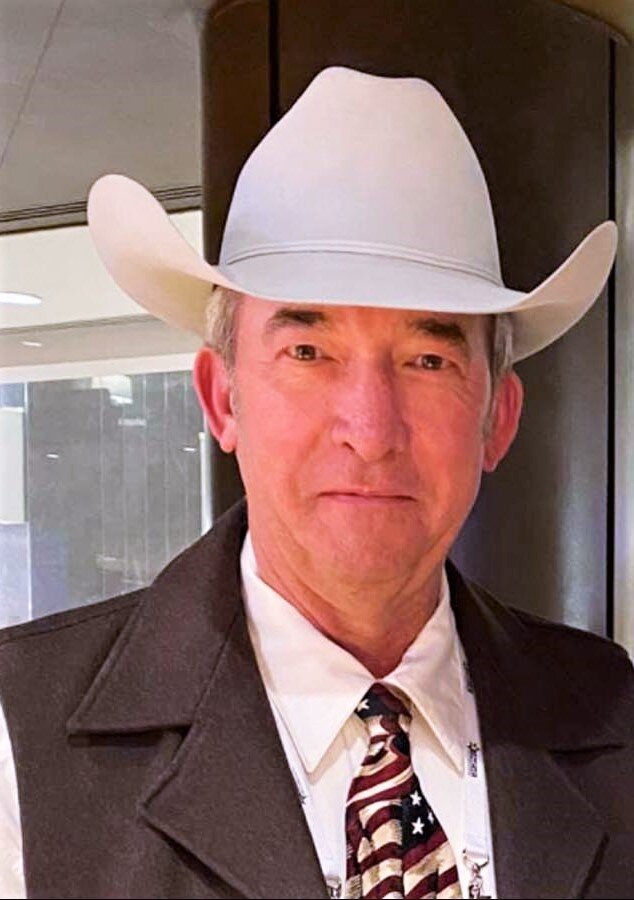Jackson Police Adding Social Worker to Assist with Crisis-Related Calls
City believed to be one of the first—if not the first—in the state to hire social worker full time in this role
- Published In: Criminal Justice
- Last Updated: Oct 06, 2021

Jackson Police Chief Michelle Weber hopes to have a full-time social worker in place by February to help officers with crisis intervention. She says 15 percent to 19 percent of calls that come into the police department may be appropriate for a social worker to handle, which would free up officers' time to focus on other parts of their jobs. (Wyoming Truth photo by Alex Bontecou)
By Kristi Eaton
Special to the Wyoming Truth
JACKSON, Wyo. — Jackson Police Chief Michelle Weber remembers the woman and her situation vividly: She didn’t have a home and had been facing violations of trespassing at locations around the community. The woman had been experiencing a manic state and delusions.
“We were trying really hard to get her to go back to her family because her family was calling us, asking, ‘Will you help her get on a plane or a bus?’ And she just wasn’t having it,” Weber said during an interview with the Wyoming Truth. “We probably worked with her for three and a half weeks and hundreds of hours, and ultimately…a social worker was able to work with our law enforcement officers…so that we could get her on an airplane, and she could go back to her family.”
Weber noted how much time went into the efforts. “In the end we were successful,” she said, “but we spent an enormous amount of officer time that had we had a social worker on staff, maybe we could have come to that resolution earlier. I don’t know.”
Cases like this illustrate why Weber wants to hire a full-time social worker to join her staff of more than 30 officers. The position had been on Weber’s wish list; now, it’s been formalized in the budget and plans are underway to make a hire soon. That could make Jackson one of the first cities, if not the first, in Wyoming to have a full-time social worker on its police force. Weber said she does not know of any other department in the state with a social worker embedded within their department.
Weber said that between 15 percent to 19 percent of calls that come into the police department may be appropriate for a social worker to handle.
“My goal is, obviously, the safety of everyone involved — the safety of the person in crisis and the safety of the officer trying to deal with the situation, but really it’s efficiency and effectiveness,” she said. “You might be effective in having an officer sit there and talk with somebody in crisis for four hours, or three hours, but that’s not really effective when you have other calls for service. So, it’s not effective for the community. If you have a social worker, you are addressing the situation at hand with a person who is more appropriately trained. The social worker is the expert in it.”
Byron Oedekoven, executive director of the Wyoming Association of Sheriffs and Chiefs of Police, said he was not aware of any other police department with a social worker embedded in Wyoming, though he stressed that sometimes grants come through quickly or such initiatives move through the process at a quick rate.
“I am aware of other departments that have very good relationships with their local — either mental health or Department of Family Services for the social worker, or even nonprofits within their community,” he said, adding that there are a number of agencies elsewhere in the U.S. — usually in larger communities — that have deployed social workers within police departments.
Oedekoven said he believes it’s a positive step because it saves using an officer for a non-law enforcement-style call and provides someone who can make follow-up care a priority, if necessary.

“I’m looking forward to hearing reports from the Jackson Police Department on their success with the division,” he added.
Weber, who joined the force in 2004 and worked her way up through the ranks to become police chief in January, said that she hopes to have someone in the new social worker position by February. The job is included in this year’s 2021-22 fiscal budget, which the Jackson Town Council approved in June. The job description is still being drafted, including the pay range, but Weber knows it will require a master’s degree in social work.
“I foresee it being someone with pretty extensive experience in social work,” she said, adding that it might be a therapist, and she would prefer to have someone with law enforcement experience. “But we will see.”
Long-term, Weber wants to utilize a therapy dog and create a crisis mobile response team so it’s not just one or two people on staff working around the clock every day.
“It’s obviously in its infancy, and we have a lot of work to do, but I’m optimistic good things will come from it,” Weber said.
She said the idea for the social worker came about through officer supervisors who had become exhausted by crisis calls and decided another solution was necessary.
Through the first half of 2021, the Jackson Police Department saw a 36 percent increase in crisis-related calls compared to 2020. This includes mental, financial and pandemic-related calls, Weber said.
“I have yet to come across another agency our size that is doing the same thing we are doing,” she said. “Some of them are partnering with public-private organizations, but they don’t necessarily have social workers within their department.”
She added, “I think we’re kind of an anomaly in that we are doing well with staffing. I think we just have an opportunity within our community to do something that others haven’t had that opportunity to do. It’s not that they don’t want to — it’s just that they haven’t had those possibilities open up to them.”
As part of her staffing changes, Weber also has focused on curtailing and eliminating sexual assault and domestic violence.
“I have reassigned and dedicated one investigator that responds to sexual assault calls for service,” she said. “My goal is to assign a second investigator once all my positions have been filled.”
The majority of the department also took part in a trauma-informed interview class that was part of her commitment to sexual assault response, she added.

Deidre Ashley, executive director at Jackson Hole Community Counseling Center, welcomes the changes Weber is making within the police department to address crisis intervention. Ashley said her organization provides essential mental health services regardless of an individual’s ability to pay, meaning a sliding fee is used based on income.
“The majority of the people we serve — I would say 75 percent — have a family income of $30,000 or less,” she said. During regular business hours, people can walk in and talk to a crisis counselor.
The outpatient clinic offers individual therapy as well as some group therapy options.
“The majority of people we see are dealing with anxiety and depression,” she said. A drop-in center is closed due to the pandemic.
Ashley said she has seen higher levels of loneliness and isolation since the pandemic hit, though numbers had been increasing before that. “I think people who were normally pretty resilient and functional, we noticed that they were struggling,” she said.
There’s also been a reduction in the stigma surrounding mental health, she noted.
“I think over the course of the pandemic it really normalized the struggle and it’s OK to not be OK during all this,” Ashley said.
Telehealth has also grown, she noted, but added that crisis work can’t be done properly and as effectively through Zoom or another online platform.
“The fact that therapy has become so portable has greatly diminished our ability to find adequate staffing, and as our demand increases because of our sliding fee, our funding from the state is decreasing,” she said. “That’s decreasing while the demand is increasing.”













